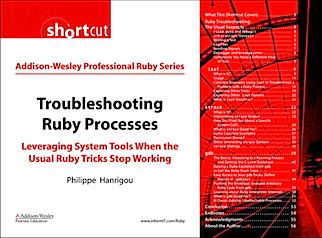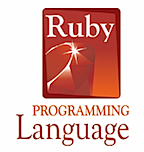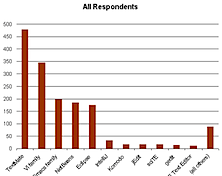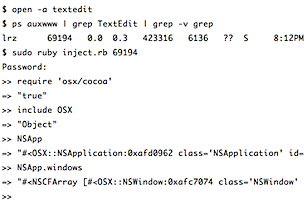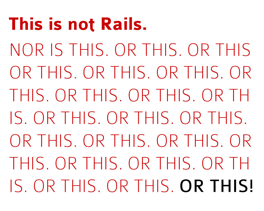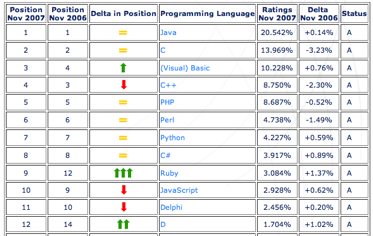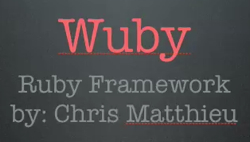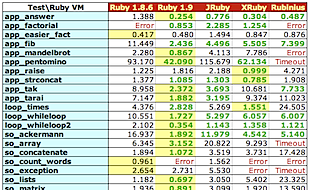
Almost a year ago, Antonio Cangiano performed some benchmarks on the then present Ruby implementations: Ruby 1.8.5, YARV (now Ruby 1.9), JRuby, Ruby.NET, Rubinius and Cardinal. The results were that YARV, although nowhere near ready for production use, was streets ahead of Ruby 1.8, and the other implementations raised enough errors to still be considered ‘experimental’.
Now Antonio has rerun the tests on Ruby 1.8.6, Ruby 1.9 (from trunk), JRuby (from trunk), Rubinius (from trunk) and XRuby 0.3.2. Ruby 1.9 again takes the lead by quite a margin, but the best development is that instead of being a distant third (behind Ruby 1.8), JRuby has made significant improvements and is smack bang in between Ruby 1.8 and Ruby 1.9 in terms of performance (while offering, of course, the benefits of the Java ecosystem). Read More

